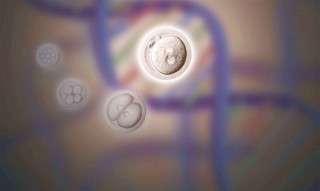Team proposes benchmark to better replicate natural stem cell development in the laboratory environment

In a study that will provide the foundation for scientists to better replicate natural stem cell development in an artificial environment, UCLA researchers at the Eli and Edythe Broad Center of Regenerative Medicine and Stem Cell Research led by Dr. Guoping Fan, professor of human genetics, have established a benchmarking standard to assess how culture conditions used to procure stem cells in the lab compare to those found in the human embryo.
The study was published online ahead of print in the journal Cell Stem Cell.
Pluripotent stem cells (PSCs) are cells that can transform into almost any cell in the human body. Scientists have long cultured PSCs in the laboratory (in vitro) using many different methods and under a variety of conditions. Though it has been known that culture techniques can affect what kind of cells PSCs eventually become, no "gold standard" has yet been established to help scientists determine how the artificial environment can better replicate that found in a natural state (in vivo).
Dr. Kevin Huang, postdoctoral fellow in the lab of Dr. Fan and a lead author of the study, analyzed data from multiple existing research studies conducted over the past year. These previously published studies used different culture methods newly developed in vitro in the hopes of coaxing human stem cells into a type of pluripotency that is in a primitive or ground-zero state.
Utilizing recently-published gene expression profiles of human preimplantation embryos as the benchmark to analyze the data, Dr. Huang and colleagues found that culture conditions do affect how genes are expressed in PSCs, and that the newer generation culture methods appear to better resemble those found in the natural environment of developing embryos. This work lays the foundation on the adoption of standardized protocol amongst the scientific community.
"By making an objective assessment of these different laboratory techniques, we found that some may have more of an edge over others in better replicating a natural state," said Dr. Huang. "When you have culture conditions that more consistently match a non-artificial environment, you have the potential for a much better reflection of what is going on in actual human development."
With these findings, Dr. Fan's lab hopes to encourage further investigation into other cell characteristics and molecular markers that determine the effectiveness of culture conditions on the proliferation and self-renewal of PSCs.
"We hope this work will help the research community to reach a consensus to quality-control human pluripotent stem cells," said Dr. Fan.
Journal information: Cell Stem Cell
Provided by University of California, Los Angeles

















